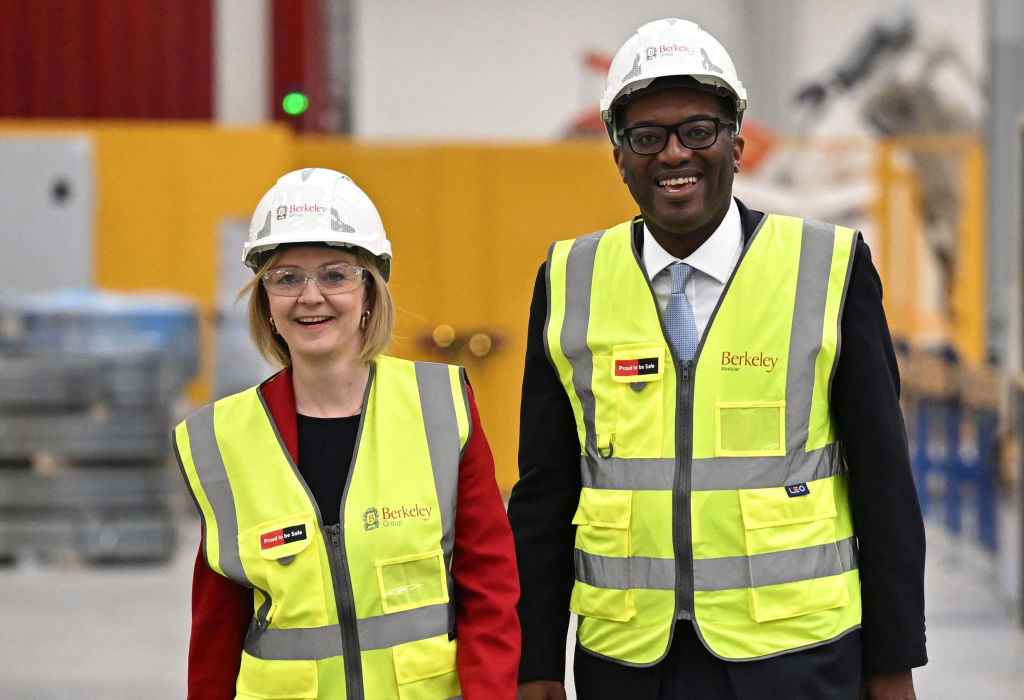It’s not just taxes holding Britain back, we need to be as investment friendly as the US

Last week we were told to expect a “mini budget”, which, ironically, introduced the largest tax cuts since 1972. It provided the clearest outline of how Liz Truss plans to deliver her target for 2.5 per cent economic growth. The tax cuts, predictably, stole the headlines, but other, more granular changes for entrepreneurs slipped under the radar.
The Seed Enterprise Investment Scheme (SEIS) gives tax relief to people who invest in early-stage businesses. Currently, if you’re a fledgeling entrepreneur, the first people you will turn to for investment are the wealthy people you know. The SEIS scheme allows those investors to avoid paying capital gains tax if they make money on those investments – making an otherwise risky investment more inviting than alternatives like putting money in stocks or government bonds.
To ensure the money goes to young companies, the scheme is capped. Under the scheme, companies can receive up to £150,000, and investors can put in amounts up to £100,000. Companies must also have been trading for less than 2 years, and have under £200,000 in assets. But the success of the UK startup scene and inflation has rendered these amounts out of date. The average amount raised at seed stage is now £400,000 but many companies will raise exactly £150,000 – the capped amount – implying that if SEIS were higher, they would receive more investment. The mini-budget rectified this. Now, companies can receive up to £250,000, investors can put in £200,000, the companies can be up to 3 years old, and can have up to £350,000 in assets.
Another big change for entrepreneurs are the reforms to pensions. Currently, the fees that pensions can charge are capped at a modest 0.75 per cent. Compare this with Venture Capital (VC) firms, which directly engage much more with the businesses they invest in, and therefore need more staff. VCs charge about 2 per cent fees on the amounts invested and take a further 20 per cent of the share of the uplift from good investments.
Pension fund managers don’t have the bandwidth themselves to work like VCs, nor can they put a significant amount into a VC fund. If a VC firm has invested in a startup that makes them a billion pounds, then the pension fund can’t, legally, pay the 20 per cent, in this case £200m, that they owe. As a result, the pension cap has restricted investments into our most high-potential companies. Only 12 per cent of VC funding in the UK comes from pensions, versus 65 per cent in the US, amounting to a shortfall of over £100bn. This is the scale of investment that the change may unleash.
But if you want to pursue 2.5 per cent growth, it is not enough to just reform taxes. While it is a factor, the UK’s sclerotic growth has not been caused by high business taxes. We have more significant, structural problems. Restrictions on building make our most productive cities too expensive to live and scale businesses in. We have the most expensive childcare in the OECD, locking young mothers out of the workforce. And businesses which have for years bemoaned access to the global talent pool are yet to see the immigration reforms that they need.
Previous governments have tried, and failed, to deliver reform. Of course, there are thorny issues organised coalitions against obvious solutions. But, if scrapping the bankers’ bonus cap is anything to go by, Truss has shown that she is willing to pass unpopular policies that might well have popular results.
